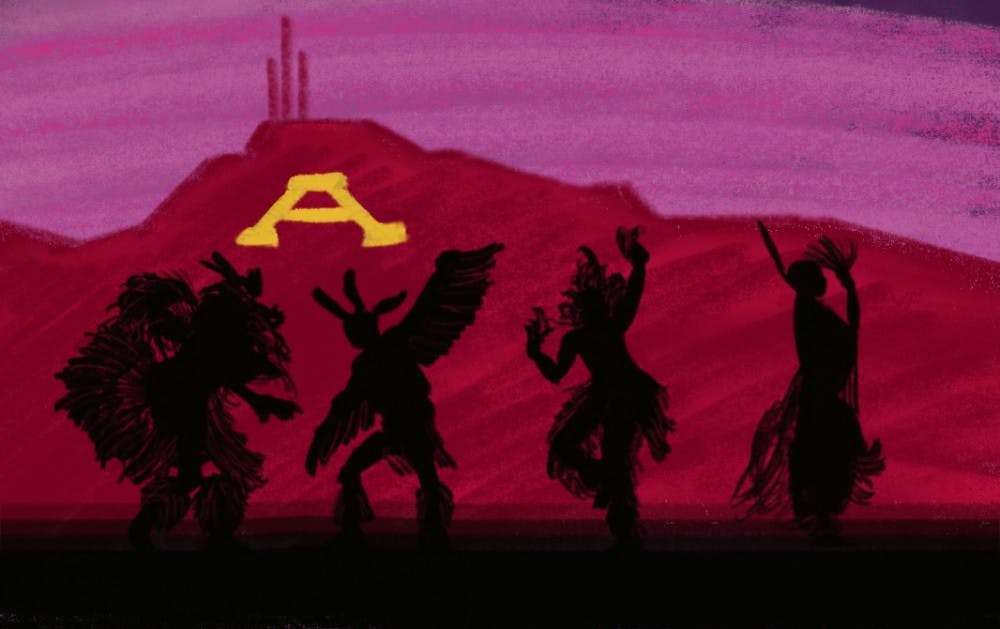A master’s degree in Indigenous education is now available to tribal members who want to remain and teach on their reservation and those interested in learning about the concepts involved in Native American education.
The Online Master of Arts in Indigenous Education is new to ASU and will see its first semester in spring 2019.
The program offers classes such as current issues in American Indian education, language/literacy of Indigenous people and history of Indian education.
Henry Quintero, an assistant professor of English and an expert in Indigenous American literature, said the program will create new opportunities for tribal students.
"I think it is going to usher in a new era of not only how we approach education in Indigenous communities, but how we reform education within the larger body of America,” he said.
Quintero said the Indigenous community is savvy about educating students without perpetuating false yet widely accepted systemic ideas on how education should be approached. This new program, he said, can offer that strategy to American Indian communities and the U.S. as a whole.
“I really believe that Indigenous people have many of the answers on how to make education good for everybody,” he said.
Quintero said allowing students to remain within their tribal communities while still pursuing a higher education is integral to their education system.
“It’s important that in this new American education process that we allow that natural education that comes from our Indigenous communities to gestate in a way that is in integrity with their own community,” he said.
The Indigenous community, he said, believes in the process of learning through actual practice and execution, and the online program perfectly embodies this sentiment.
“We’ve set (education) up in a school where everything’s presented in a box," Quintero said. "Kids learn in a box. They sit down at boxes. They sit in seats that look like boxes, and they start thinking in the box. One of the best ways to stop thinking in the box is to … engage in learning in a real space. When you’re doing online classes and still working in your community, that’s a better space than a box.”
Deborah Chadwick, the Indigenous Education Graduate Director at ASU, said the program was born out of a number of inquiries from tribal members that wanted a way to pursue higher education without having to leave their respective reservations.
Chadwick said the program will focus on Indigenous knowledges and research methods in education. The degree will look at education from the viewpoint of Native American people, she said.
She emphasized the importance of a degree from the point of view of Indigenous people when the community feels it hasn’t been represented in the past.
“I’ve worked in (Native American) communities for a long time, and it’s like their voices haven't been heard in their studies,” she said. “When you look at textbooks, their voices haven’t been in there, and I think that’s very important to them.”
Bryan Brayboy, President’s Professor of Indigenous education and justice and director of the Center for Indian Education, co-founded the Online Master of Arts in Indigenous Education.
“What we thought we’d do is try to fill some of the void that exists and provide opportunities for those teachers and educators in tribal communities who want to earn another degree,” he said.
Brayboy said that the educational achievements of American Indians are “well below where (they) should be,” and that while there are many ways of addressing this issue, the most seemingly straightforward way is to engage with Indigenous teachers to find out what their students need in order to excel.
He said the program is an example of President Michael Crow holding true to his word, referencing a statement made in August of 2015 in which Crow said the University is “dedicated to supporting tribal nations in achieving futures of their own making.”
Brayboy said he believes the future of the Indigenous community lies in its youth.
“If we’re going to be serious about our commitments, then we’re going to build programs that will help young people create futures of their own making,” he said.
Reach the reporter at japere38@asu.edu or follow @jsphprzz on Twitter.
Like The State Press on Facebook and follow @statepress on Twitter.




